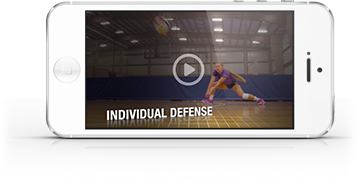You need to be a Premium Member to access this content. Please use the links below to log in or start a free trial.
What are the member benefits?Skills, Drills, Clinics, and Videos for College, High School, and Club Coaches
Skills, Drills, Clinics, and Videos for College, High School, and Club Coaches
Get our best videos sent to your inbox every Tuesday and Friday
